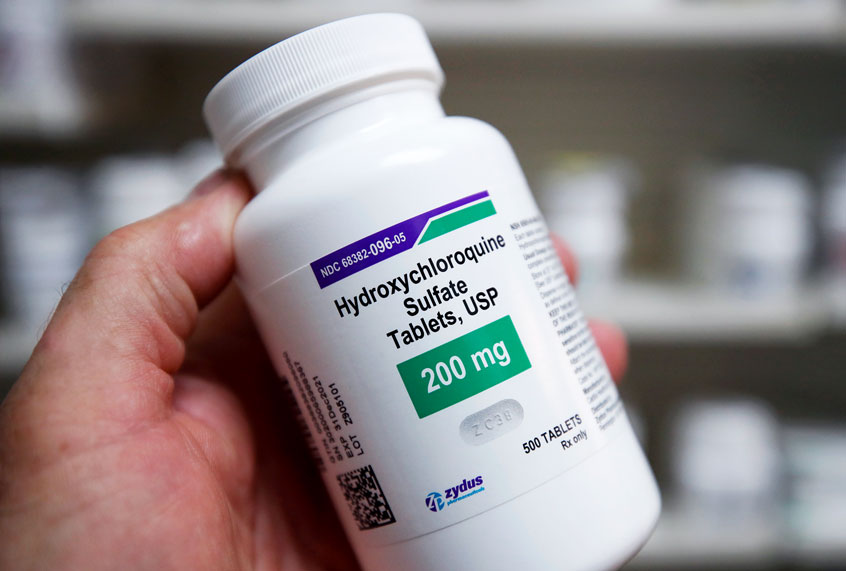An article in the respected medical journal The Lancet which found that hydroxychloroquine use increased the risk of death in COVID-19 patients was retracted on Thursday, with the authors admitting they could not “vouch” for the accuracy of their primary sources. The retraction is likely to become politicized, as the efficacy of the anti-malarial drug became part of the ongoing culture war after President Donald Trump touted it as a coronavirus cure.
“Today, three of the authors of the paper, ‘Hydroxychloroquine or chloroquine with or without a macrolide for treatment of COVID-19: a multinational registry analysis’, have retracted their study,” the editors of The Lancet said in a statement Thursday. “They were unable to complete an independent audit of the data underpinning their analysis. As a result, they have concluded that they ‘can no longer vouch for the veracity of the primary data sources.’ The Lancet takes issues of scientific integrity extremely seriously, and there are many outstanding questions about Surgisphere and the data that were allegedly included in this study.”
The Lancet is not the only prominent medical journal to have to retract a major study related to the coronavirus. The New England Journal of Medicine also retracted a study Thursday that discussed blood pressure medications and COVID-19.
The original study in The Lancet, which was published on May 22, purported to find that when either hydroxychloroquine or its relative drug chloroquine is used either alone or with a macrolide, there was no benefit in terms of treating COVID-19. In addition, the study argued that “each of these drug regimens was associated with decreased in-hospital survival and an increased frequency of ventricular arrhythmias when used for treatment of COVID-19.”
As a result of the study, France’s health ministry banned the use of hydroxychloroquine “whether [in doctors offices] in the cities or in the hospital.” That nation’s policy stood in stark contrast to President Donald Trump’s words about the drug; he claimed last month to be taking it, telling reporters that “a couple of weeks ago I started taking it. Here’s my evidence. I get a lot of positive calls about it. The only negative I’ve heard was the study where they gave it was at the VA with, you know, people that aren’t big Trump fans gave it.” He has repeatedly touted it as an effective treatment for the disease.
The Lancet’s retraction does not mean that hydroxychloroquine actually is an effective medication for COVID-19. Last month, World Health Organization researchers found that the drug does not successfully treat COVID-19. Rather, they found four or five other drug treatments that appeared to limit COVID-19’s severity or length.
Despite this retraction, there remains no reliable scientific evidence that hydroxychloroquine effectively treats the disease. Trump also has a small financial stake in a French drug company, Sanofi, which manufactures the brand-name version of hydroxychloroquine.
Nevertheless, the retraction could be egg in the face for The Lancet, which last month called on American voters to remove Trump from office based on his “incoherent” response to the pandemic. Trump did in fact refuse to confront the pandemic for more than ten weeks after he was first informed of it, disbanded a pandemic panel in 2018 that would have helped America prepare for an outbreak, has proposed cutting the budget for the Centers for Disease Control and has urged reopening the economy despite considerable evidence that doing so would increase the death toll.
“The administration is obsessed with magic bullets — vaccines, new medicines, or a hope that the virus will simply disappear,” wrote the editors. “But only a steadfast reliance on basic public health principles, like test, trace, and isolate, will see the emergency brought to an end, and this requires an effective national public health agency.”

